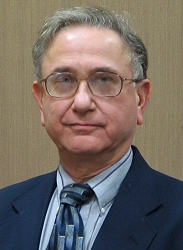Back in graduate school, the Psychology Department chair at MIT liked to tell his classes about the three Laws of Nature: the Law of Falling Bricks, the Law of Falling Cats, and the Law of Falling People. Physicists have formulated the precise laws that describe how a brick falls from a table to the floor. Biologists have discovered how cats fall differently from bricks, twisting reflexively to always land on their feet. But what laws completely describe a person falling from a roof? This is the challenge of behavioral scientists.
To the professor, the Law of Falling Bricks implied all of the physical science laws that explain why and how physical and chemical events happen, such as what happens to the light of headlights as it reflects off a wet highway and what factors affect the image that appears on photographic film. And he included all of the biological sciences in the Law of Falling Cats. This knowledge tells us much about how the brain works and how our bodies react to force and the environment.
But the professor's point was that unlike bricks, the behavior of people is influenced by many factors, some of which are not easily observed. He would ask, Why did the person fall off the roof? Was he pushed? Did he slip? Was he trying to commit suicide? Did he simply lean over the edge too far because there was no railing? Was he not paying attention? Did he disobey a safety rule or remove a guardrail? Did he not perceive that he was at the edge? Human factors specialists consider these possibilities to explain and predict human behavior.
Human factors specialists come mostly from backgrounds in experimental or cognitive psychology and industrial engineering, as well as other fields that deal with human behavior in the context of equipment, the environment, and other people in a work or play situation. Some of us are educated in more than one discipline which is often important in understanding all of the factors that contribute to behavior.
The traditional role of the human factors specialist is to aid in making a person efficient, safe, and comfortable in any activity. We not only design work environments and procedures to meet those goals, but ensure that information and training is provided when and where needed. In cases where those measures did not prevent an accident, we are asked to use this expertise to figure out why and how it occurred, and how it could have been prevented.
Typical forensic applications of human factors expertise are answering questions about human abilities and limitations for attention, memory, motivation, perception, movement, and strength. These questions often come up in the context of auto accidents, slip and fall, warnings and labels inadequacy, and industrial accidents. An area that is rapidly gaining attention is medical accidents, especially caused by device design errors.
A question posed to me during an industrial accident trial early in my career made me think about what we can know about another person. I was asked, "Don't people have an obligation to protect themselves from danger?" I answered that the question is more a matter of philosophy and not within the domain of human factors. If people always protected themselves as a matter of obligation, no one would take on a job that was not inherently safe. That would include almost every occupation we depend on for our well being.
On the other hand, we all have the obligation not to put others in danger by designing or using unsafe work situations, including tools, equipment, and environmental factors. We should also be expected to obey rules and instructions that are provided to keep us safe. Sometimes people rely on common sense to guide other people into doing the right thing, but common sense is not common.
As human factors experts we know that when we cannot rely on the Laws of Falling Bricks and Falling Cats to make a person safe, we must use behavioral research, human factors design guidelines and handbooks, and thorough job analyses to minimize danger in an environment. Lawyers should expect us to account for every relevant factor, whether under the domain of Bricks, Cats, or People.
When I became Chair of the Forensics Professional Group of the Human Factors and Ergonomics Society I posed these questions to our members: Just what do we mean when an accident is attributed to "human error"? Under what circumstances could two human factors experts arrive at opposite conclusions? In future installments, I will address some interesting issues based on these questions, as well as some misapplications of scientific studies that often find their way into testimony.










